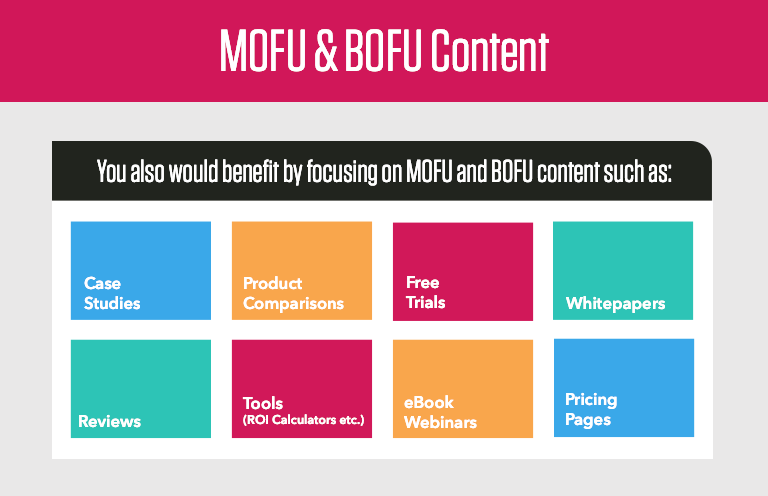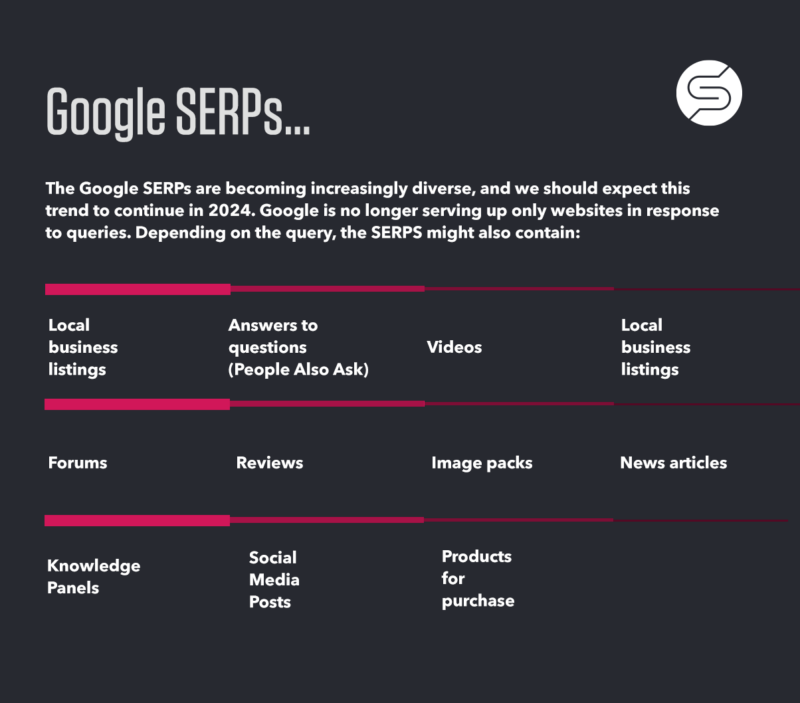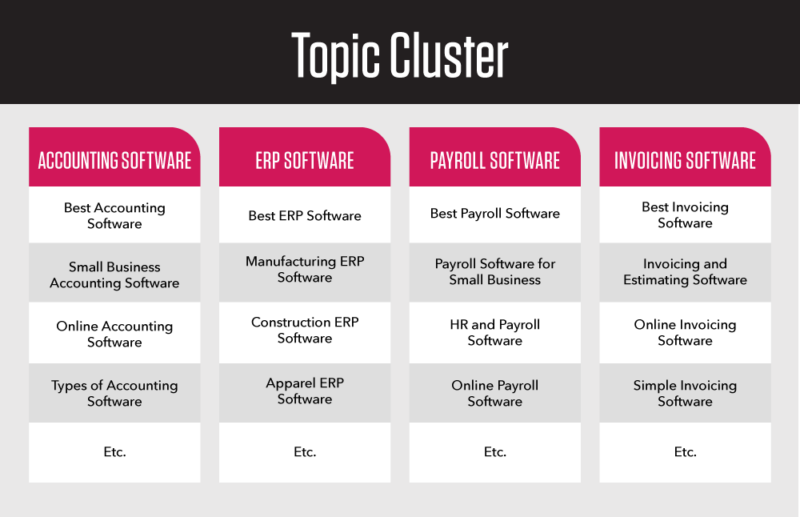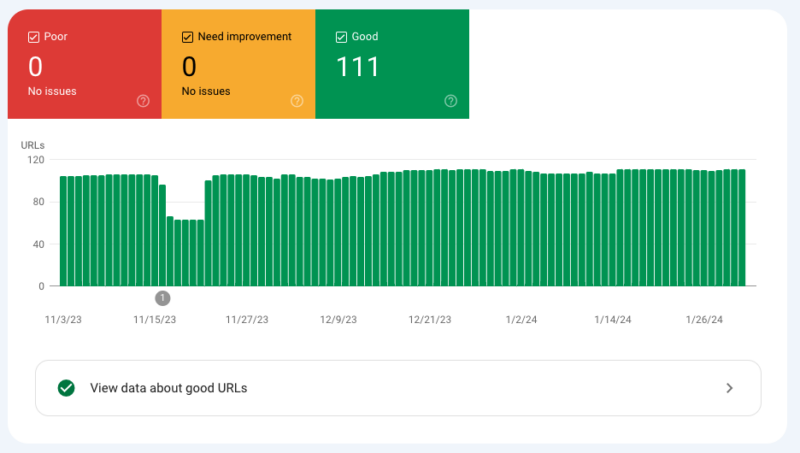Major SEO Trends to Know in 2024

Let’s take a moment to stare into the search engine optimization (SEO) crystal ball.
What does the coming year hold for SEO? What trends should you expect to see? How can you prepare to capitalize on these trends?
In this guide, we look at the most important SEO trends you need to be aware of in 2024.
Generative AI in the Search Results
By investing in these types of content, brands can continue to gain visibility and drive traffic through SEO while averting direct competition with generative AI results.
A Sea of Sameness with AI Content
If Google’s frenzied algorithm updates in 2023 have shown us one thing, it’s that the bar for content and domain quality has risen faster than we thought. In 2024, we need to find ways to scale the production of high-quality content and groom our content portfolio.
So how can your content marketing cut through the noise and capture your target audience’s attention in 2024? It starts with creating amazing, high-value, in-depth content that blows AI content out of the water. Content that can’t be replicated by AI because of the depth in which it covers a subject.
Remember, AI is a generalist. It can talk about many subjects on a high level. But it can’t speak with the expertise that someone with years of experience can. And it’s this kind of expertise that should be incorporated into the content that brands create in the coming year.
What does this look like?
- Sourcing and including quotes from experts, both internal and from your network. For example, check out this post about B2B growth strategies with contributions from a variety of experts.
- Conducting original research and sharing your insights
- Writing deep content that includes insights only an expert could know
- Providing valuable tips and strategies based on real experience and examples
For example, for one client in the healthcare industry, Stratabeat, a B2B SEO agency, conducted a survey, collected 3,500+ responses, and then, based on the results, created a report, five blog posts, two SlideShares, several byline articles published in industry websites, and an infographic. The blog posts were the highest-performing posts in terms of organic traffic that year. The campaign was so successful that the CEO wound up appearing on national TV five times as a result of the campaign.
By doing these types of things, you’re creating content that stands out from the rest AND establishing yourself and your brand as a thought leader. This is crucial for gaining trust and credibility with your audience.

The Risks of AI-Generated Content
Do NOT overlook these risks when using AI-Generated Content Read the PostContent Based on Firsthand Knowledge Will be Rewarded
More Frequent Algorithm Updates

How to Measure the ROI of SEO (Full Guide with KPIs & Calculator)
Looking to calculate the ROI of your SEO campaigns? Use our SEO ROI Calculator Read the PostChatGPT is Going to Steal a Percentage of Long-tail Searches
SERPs Are More Diverse
E-E-A-T Matters More Than Ever
Zero Click Searches on The Rise
Helpful Content Will Reign Supreme
Topical Authority Will Be Increasingly Important
Ready to accelerate your growth?
Stratabeat achieved 7,235.7% organic traffic growth for a B2B client in one of the most competitive categories in Google. See How!User Experience Impacts Rankings
Content Needs To Be Refreshed Faster and More Frequently
Preparing For The Future






